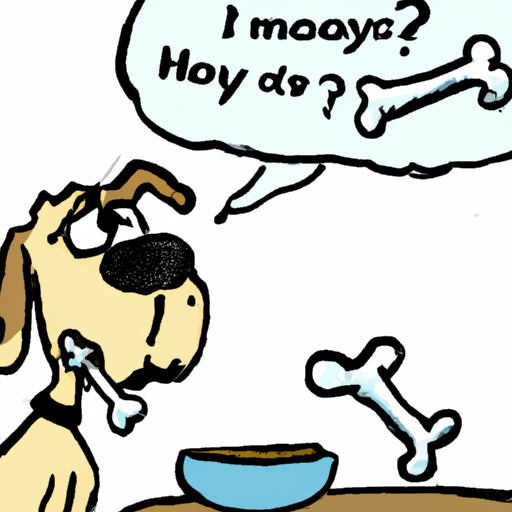Your Dog’s Natural Instincts
You might be surprised to learn that your dog’s attraction to bones is rooted in their ancestral behavior. Like their wild counterparts, domestic dogs are instinctively drawn to bones as a source of nutrition. When wolves and wild dogs make a kill, they don’t just eat the meat. They chew on the bones, too, to access the nutrient-rich marrow inside.
Nutritional Benefits of Bones
While it’s not advisable to toss your dog a bone from your dinner plate, there are specially prepared bones for dogs that are packed with nutrients. Here’s why they’re beneficial:
- Calcium and Phosphorus: These minerals are essential for healthy bones and teeth.
- Bone Marrow: Packed with iron and zinc, it helps boost the immune system.
- Cartilage and Connective Tissue: These provide natural glucosamine and chondroitin, which support joint health.
| Nutrient | Benefit |
|---|---|
| Calcium and Phosphorus | For healthy bones and teeth |
| Bone Marrow | Boosts immune system |
| Cartilage and Connective Tissue | Supports joint health |
The Risks of Bone Chewing
Despite these benefits, it’s important to be aware that not all bones are safe for your dog. For instance, cooked bones can easily splinter and cause harm. Here are some risks associated with bone chewing:
- Choking: A piece of bone can get stuck in your dog’s throat.
- Broken Teeth: Hard bones can break your dog’s teeth.
- Gastrointestinal Complications: Splintered bones can puncture your dog’s stomach or intestines.
Safe Bone Chewing Practices
To ensure your dog’s safety, it’s crucial to observe the following practices:
- Choose the Right Size: The bone should be larger than your dog’s mouth to prevent choking.
- Monitor Your Dog: Never leave your dog alone while they’re chewing a bone.
- Choose Raw Bones: Cooked bones are more likely to splinter.
Alternatives to Bones
If you’re concerned about the potential risks of bone chewing, consider these safer alternatives:
- Dental Chews: These are designed to clean your dog’s teeth without the risks associated with bone chewing.
- Tough Rubber Toys: These can withstand heavy chewing and won’t splinter or break.
- Edible Treats: These provide the chewing satisfaction of a bone without the risks.
Frequently Asked Questions
Q: Can I give my dog a bone from my dinner plate?
A: No, cooked bones can splinter and cause harm to your dog.
Q: Are there any safe bones for dogs?
A: Yes, but it’s best to choose raw bones and monitor your dog while they chew.
Q: What are some alternatives to bones?
A: Dental chews, tough rubber toys, and edible treats are all safe alternatives to bones.



